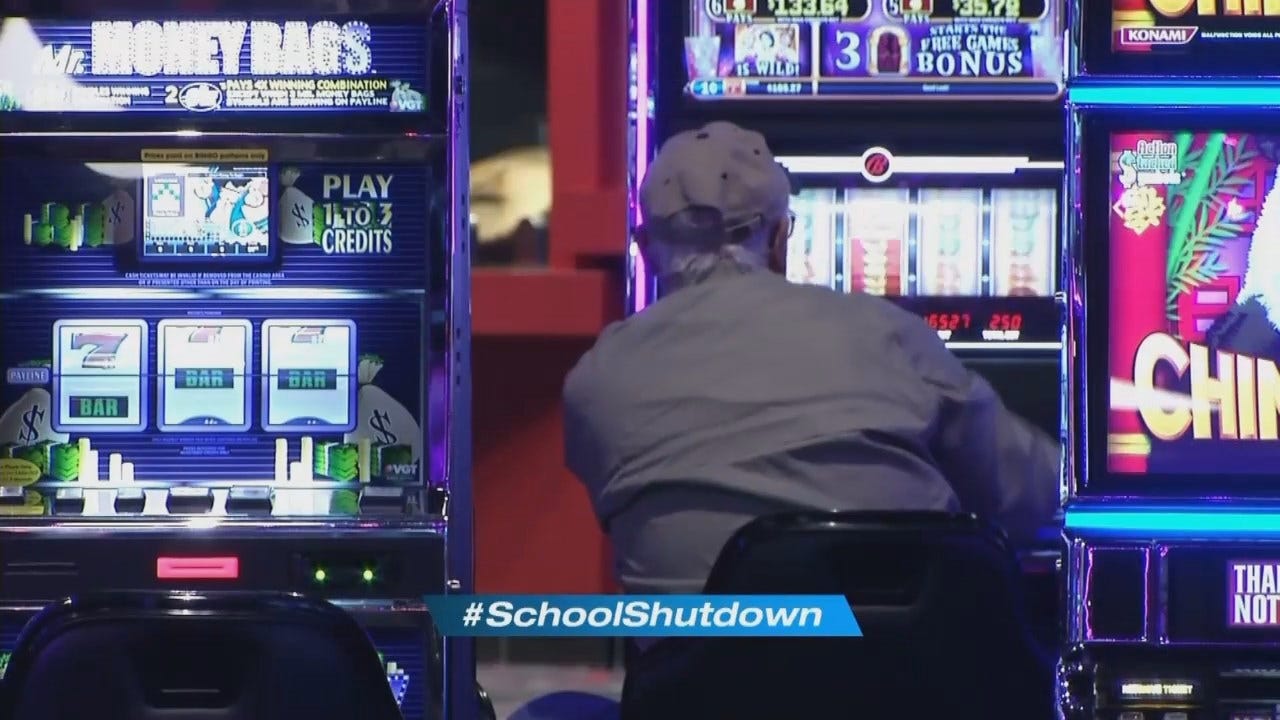Cherokee Nation Speaks Out Amid Questions About Gaming Funds For Education
<p>Cherokee Nation is speaking out as posts circulate on social media questioning tribal contributions to our state and education. “If the state would look to the tribes for leadership, if they would follow our example, this state would be in better shape,” declared the Cherokee Nation Secretary of State.</p>Wednesday, April 4th 2018, 9:46 pm
“Frankly, if the state would look to the tribes for leadership, if they would follow our example, this state would be in better shape,” declared Cherokee Nation Secretary of State Chuck Hoskin.
Cherokee Nation is speaking out as posts circulate on social media questioning tribal contributions to our state and education.
Social media posts are questioning where billions of dollars have gone, but only some of that money is given to the state, and that’s just one way tribes are already helping fund education in Oklahoma.
Oklahoma has the most tribal casinos in the country, generating a $7.2 billion economic impact since 2006. A big dollar amount that some are confusing with actual contributions to the state.
Complete Coverage: School Shutdown
“We feel good about the tribe’s commitment,” said Hoskin. “A billion dollars is a lot of money.”
All tribal nations pay what’s called “exclusivity fees” to operate casinos.
Tribes have paid $1.12 billion since 2006. In 2016, $132 million.
The Department of Education gets 88 percent.
“I feel discouraged that the state’s fiscal policy, which has, quite frankly, been a disaster, has effectively wiped out that contribution,” stated Hoskin. “I’m talking about tax cuts and tax credits.”
Hoskin says that his tribe also donates more than a third of revenue from car sales taxes. Last year, that totaled $5.4 million.
“We’ve seen robotics programs started in small schools that might otherwise not be able to do it,” said Hoskin. “We’ve seen superintendents that said, ‘you know, we get to hang on to a teacher that we might have had to lay off.’”
Hoskin also had a comment on the state’s largest teacher’s union’s push for a bill that would allow ball and dice games in casinos.
Hoskin says, “Will ball and dice be part of the solution? It could be, but frankly the larger solution isn’t what the tribes can commit to the state, but rather what the state can do to invest in its people.”
The Senate could talk about the ball and dice bill on Thursday.
The Department of Education is projecting a $25 million increase from tribes this fiscal year.
More Like This
September 29th, 2024
September 17th, 2024
Top Headlines
December 11th, 2024
December 11th, 2024
December 11th, 2024
December 11th, 2024











